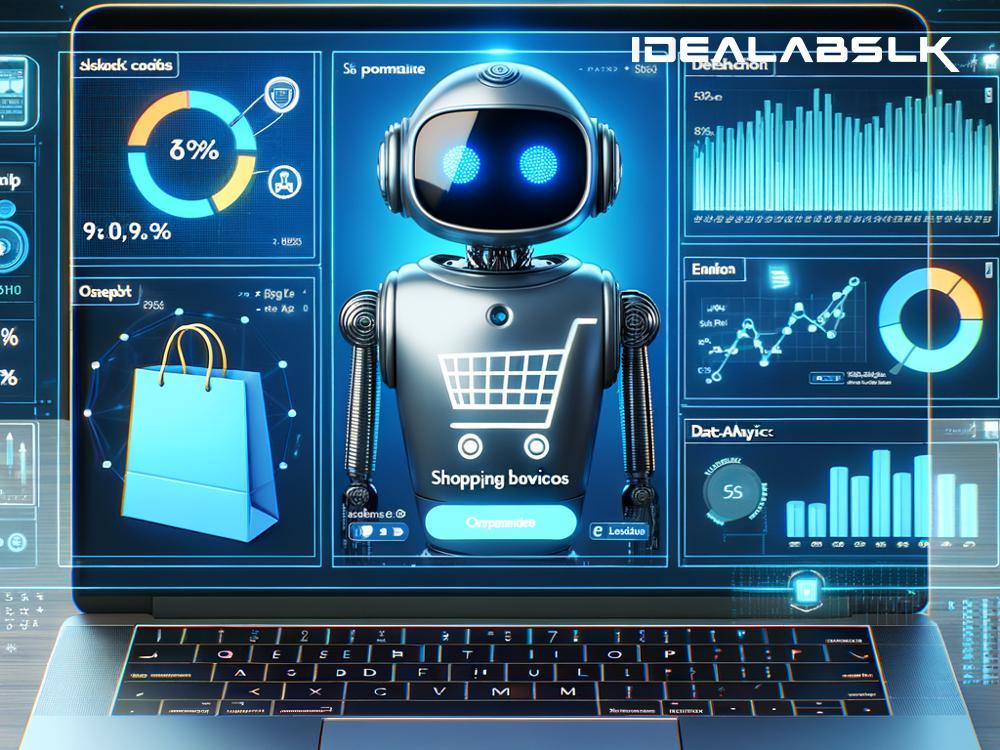The world of online shopping is transforming rapidly, and a big part of that change is thanks to Artificial Intelligence, or AI for short. AI might sound like something from a sci-fi movie, but it's actually a very real technology that's making a huge impact on e-commerce marketing. From the way we shop online to the personalized ads we see, AI is reshaping the landscape. So, let's dive into understanding the impact of AI on e-commerce marketing in simple English.
What is AI?
AI, or Artificial Intelligence, is technology that allows machines to learn from experience, adjust to new inputs, and perform human-like tasks. It's like teaching a computer to think and make decisions in a way that is similar to how humans do.
Personalized Shopping Experiences
One of the key areas where AI is making a mark is in creating personalized shopping experiences. Remember the last time you shopped online and saw product recommendations that seemed tailor-made for you? That's AI in action. By analyzing your past shopping behavior, preferences, and even searches, AI helps online stores show you products you're more likely to buy. This not only makes shopping more enjoyable for you but also increases sales for businesses.
Chatbots: The 24/7 Customer Service
Ever landed on a shopping site and got greeted by a chat window asking if you need help? That's a chatbot, and it's powered by AI. These chatbots can handle a wide range of customer service tasks, like answering FAQs, guiding you through a purchase, or even handling returns. The beauty of these chatbots is that they're available 24/7, meaning you can get help anytime, anywhere.
Predictive Analytics: Foreseeing the Future
AI helps e-commerce marketers look into the future, literally. By analyzing heaps of data, including past sales, search trends, and consumer behavior, AI can predict what products will be in demand. This allows businesses to stock up accordingly, create targeted marketing campaigns, and even adjust pricing for maximum profit. It's like having a crystal ball, but one that's powered by data.
AI-Powered Ads that Know You
Ever wondered how online ads seem to know exactly what you've been eyeing? Well, that’s AI for you. Through a process called machine learning, AI can analyze your online behavior and then show you ads that are most relevant to your interests. This not only makes the ads you see more interesting, but it also increases the chances of you making a purchase.
Enhancing the Efficiency of Marketing
AI doesn't only make marketing more effective; it also makes it more efficient. With AI, tasks that once took hours of human labor, such as analyzing customer data or crafting personalized emails, can now be done in minutes. This not only saves time but also allows businesses to focus their efforts on more creative aspects of marketing.
The Challenges of AI in E-commerce
While AI is transforming e-commerce marketing in many positive ways, it's not without its challenges. Privacy concerns are at the forefront, as the use of AI often involves collecting and analyzing vast amounts of personal data. Businesses must navigate these concerns carefully, ensuring they're transparent about how they use data and that they're in compliance with all regulations.
Moreover, there's the challenge of getting AI right. Poorly implemented AI can lead to irrelevant product recommendations, annoying ad experiences, or chatbots that frustrate more than they help. Businesses need to invest in high-quality AI and continually refine it based on customer feedback.
Looking Ahead: The Future of AI in E-commerce
The impact of AI on e-commerce marketing is just beginning to unfold. As AI technology continues to advance, we can expect even more personalized shopping experiences, smarter customer service solutions, and marketing that's both more effective and more efficient. For businesses, the key to success in this AI-driven landscape will be to use the technology in a way that enhances the customer experience while also addressing privacy and ethical concerns.
In conclusion, AI is not just a passing trend in the world of e-commerce marketing. It's a fundamental shift in how businesses interact with their customers. By leveraging AI, e-commerce businesses can offer more personalized and engaging shopping experiences, streamline their operations, and ultimately, drive more sales. As we look to the future, the possibilities of AI in e-commerce seem as limitless as the technology itself.

